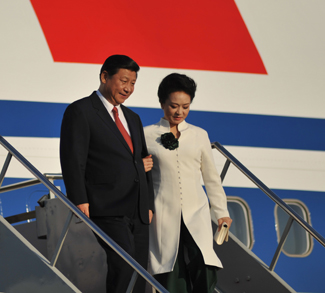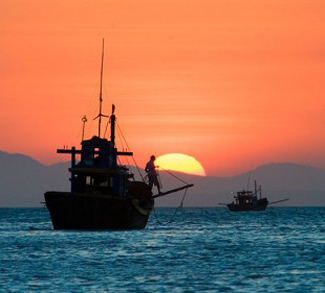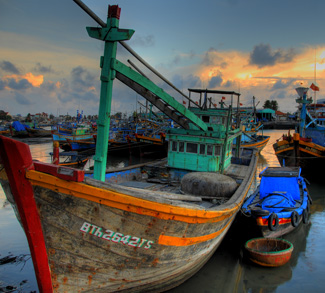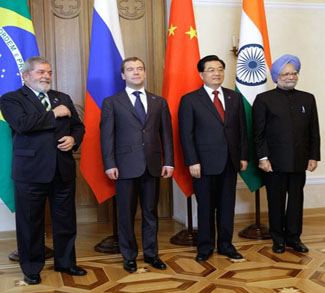Fifty-one agreements were signed by China and Pakistan during President Xi’s April visit, kick-starting the “One Belt, One Road” (OBOR) project a mere two years after the plan was first announced. Details of the project change as frequently as the total number of countries involved in China’s ambitious approach to make the ancient Silk Road fit for the 21st century. Geopolitical calculations are as much a reason for this 2-trillion-dollar project as economic ones. The OBOR project represents one of China’s new overarching foreign policy goals, and it demonstrates a willingness and ability to challenge old power structures, especially in Central Asia and the Middle East.
While China strengthens its claim in the South China Sea by creating artificial islands to host military bases, to the west it expands its sphere of influence by opting for a different strategy – the power of money. What seemingly worked well in the past on the less wooed African continent will now be extended into its western neighborhood. The Silk Road, or OBOR project, aims at creating an enormous economic bloc and fostering trade, cultural exchange, political collaboration, and military cooperation among its members – under Chinese domination. An obvious competitor against Russia’s Eurasian Union and India’s Act East and Connect Central Asia initiatives, the OBOR project has many Central Asian and Middle Eastern states justifiably worried of being caught up in a race for dominance in the region, producing somewhat cautious reactions to China’s big plans. Yet, some countries in the region – even those torn by sectarian conflict – may still be inclined to step into a new age due to China’s vast investments and its associated desire to protect its economic engagements.
The United States and its military interventions on the other hand, which aimed at securing political influence and protecting economic interests, bore no sustainable fruits and have led to growing instability in the region. Furthermore, US policy in the Middle East yielded anti-American resentment in the public and political spheres. China’s approach, however, will most likely not lead to demonstrations, burning flags, and attacks against its embassies, because it will not be seen as a war-mongering imperialistic force, giving itself a chance to establish itself as a partner whose outstretched hand is worth taking.
The United States and its military interventions on the other hand, which aimed at securing political influence and protecting economic interests, bore no sustainable fruits and have led to growing instability in the region.
Laying the cornerstone for OBOR in Pakistan was a clever move, because no other country in Asia views China as positively as Pakistan does. Hence it can function as an example of a working and successful collaboration at eye-level, dispelling fears of other countries concerning China’s imperialistic ambitions. The money China intends to pour into the Pakistani economy and infrastructure over the next five years is considerably more than what Pakistan has so far received in aid from the United States since 9/11. Roughly half of this $30 billion in US aid came in the form of military assistance, and it had hardly any stimulating effect on Pakistan’s crippled, investment-starved economy. China’s $46 billion deal comes at a price, but it is a price Pakistan will be happy to pay. Not only does China expect support on the question of the South China Sea, it also demands support and cooperation in fighting Islamic terrorism. Though Pakistan’s army failed to protect NATO’s supply routes in the past, some believe the protection of the Chinese economic corridor might be taken a lot more seriously because of its grave economic and financial implications, according to former diplomat Ashraf Jehangir Qazi. China gives Pakistan a real incentive to tackle its terrorism problem without being regarded as a collaborator in an anti-Muslim alliance.
Critics fear that China might punch above its weight in military and diplomatic terms if it becomes entangled in conflicts located along the proposed trade route. China will have to succeed in making the world believe that it is pursuing primarily economic aims, beneficial to all parties involved. Only then will it have a chance to end conflicts by political or diplomatic means, protecting its investments and the economies of the respective countries.
The Houthi rebellion in Yemen is a perfect example. While Iran expects an economic stimulus through the easing of sanctions, China is expected to remain Iran’s largest trading partner, which puts Beijing in an influential position. If compared, Iran’s trade relations with China should be of greater value for Tehran than securing its influence in Yemen, thus leading to a discontinuation of Iranian support for the Houthi rebels and the ultimate preservation of the status quo – one step towards a more stable Middle East. However, China will have to deliver and make its promise of a “win-win progress through cooperation” a reality, and financially compensate what others gave up in strategic advantage to protect China’s investments. Sino-Persian relations, which could be described as courteous, took a hit in 2010 when Beijing supported UN sanctions against Iran; yet, China remains an influential and important diplomatic and trading partner.
Despite its tougher stance on Iran, China can count on the Iranian interest to uphold their economic ties. Cooling trade relations would mean a severe blow to Iranian financial support for rebel groups in Yemen and Syria. Just like the British Empire’s expansion was built on regional stability to pursue commercial interests, China also seeks political conditions where business and investment can thrive. Once China pours large sums into the region it is likely to protect these investments by buying the support of those responsible for conflicts that might threaten Chinese economic interests. The price Beijing will have to pay for peace is likely to be lower than losing crucial links along the Silk Road, making the whole project redundant. Peace and stability – even more so when it is paid for – will in the long run create economic growth and prosperity that many will not dare to jeopardize as long as China engages in overseas trade and business in the Middle East.
The opinions, beliefs, and viewpoints expressed by the authors are theirs alone and don’t reflect any official position of Geopoliticalmonitor.com.




